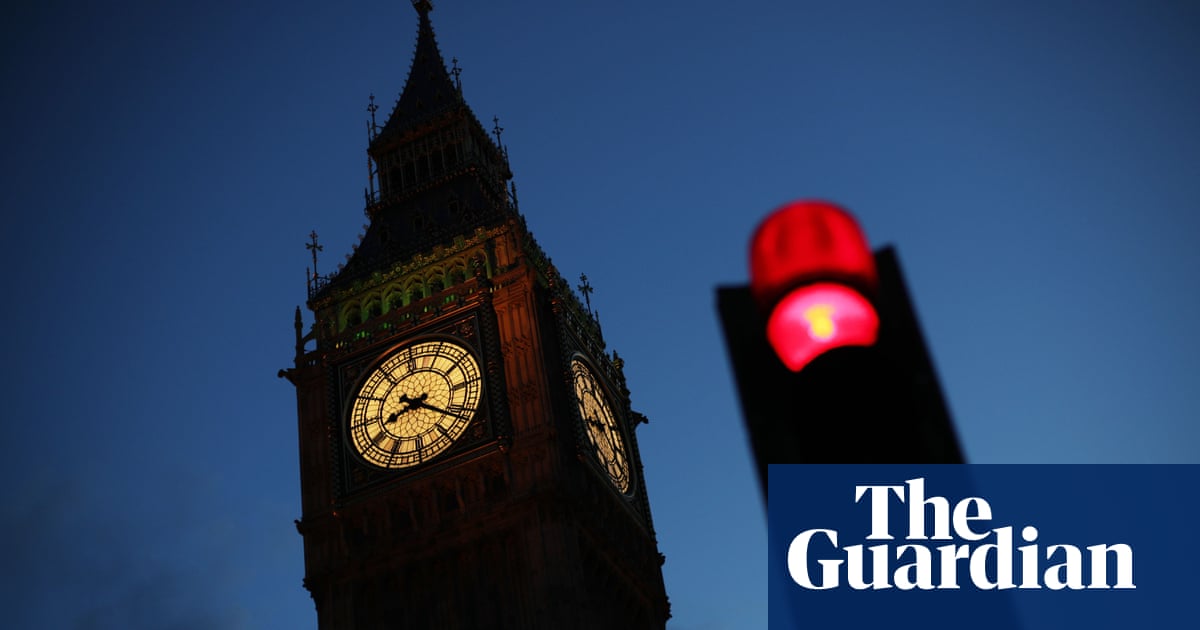When Simon Waite began working as a private hire driver in 2017, it gave him the flexibility and income to spend time with his children, then aged five, 12 and 18. “One of the reasons I loved Uber was because I could now go to the school plays, my son’s football, I could earn my money around life,” he says.
But over the past few years, Waite, a 41-year-old in Hertfordshire, says he has to spend dramatically more time on the road to earn a living. To make £1,000 a week a couple of years ago it took about 50 hours, he says, whereas now it’s about 70 hours – with most drivers needing to pay insurance, tax, vehicle fees and upkeep, fuel, licenses, rent, bills and living costs.
Waite claims that, after the supreme court classed Uber drivers as entitled to workers’ rights such as holiday and sick pay in 2021, the company has reduced fares for drivers to make up the cost.
To contest his working conditions, Waite will not be working for private hire driving apps between 4pm and 10pm on Valentine’s Day. He’s taking part in a log-off action against Uber, Bolt and Addison Lee, withdrawing his labour alongside thousands of others to demand better pay, rights and safety measures.
Friday’s action has been organised by drivers for the three companies and is supported by the Independent Workers’ Union of Great Britain (IWGB). “Drivers report that their conditions have only worsened following the [2021] ruling, since Uber responded to the forced introduction of rights by cutting its rates,” the IWGB says. About 200 drivers from cities across the country got in touch with the Guardian to share their views on the action.
Waite, who is also signed up with Bolt, says Uber is a fantastic app which has “done so many amazing things for how people get around”. But he says declining pay has “reached a point where I can’t do it”. He’s considering leaving the job.
The Valentine’s Day action will be “about raising awareness amongst drivers [and] building that momentum”, Waite says. “We power Uber, we power this system. If we’re united, we can actually make a change.”
Another driver who plans to log off on Friday is Isaac Mohammed, 30, a part-time driver in Cardiff since 2016.
“Uber used to be the best ride-sharing app, but over the past two years, things have changed drastically,” Mohammed says, adding that for some rides the rate can be less than £1 a mile – including holiday pay – whereas previously it was often £3 a mile.
“Nowadays, having a takeaway for me is seen as a luxury,” he says. “It’s very hard to survive, unless you’re living in your car.”
A core issue for Mohammed is what counts as working time. Uber calculates it from when a ride is accepted until the passenger exits, but he says this doesn’t account for time waiting for rides – which means the pay is effectively lower.
Also taking part is Kieran Airey, a 36-year-old in Merseyside, who drives for Uber and a local private hire firm. He says he noticed in early 2024 it was taking longer to hit his target of £200 a day. That meant working around 55 to 60 hours a week, up from 45 hours. “At one point, I was working basically seven days a week,” he says.
He found it harder to take his 14-year-old son to football, ate processed, microwavable meals rather than home-cooked dinners because of his increased fatigue and had to take weekend naps, so “I had enough energy to work that following night”.
Airey says he’s frustrated by a lack of transparency about algorithms and payment structures. “I just want fair pay for fair work,” he says.
Uber denies claims drivers are unfairly paid. “Uber provides a national living wage guarantee to all drivers, topping up their earnings if they ever fall below that level, although most drivers can and do earn much more,” a spokesperson said.
“All drivers are also paid holiday pay weekly as cash, which represents an additional 12% of their earnings paid out weekly,” drivers have “the freedom to work where and when they want” and “industry-leading rights”.
An Addison Lee spokesperson said the company had “a close working relationship with our drivers” and does “not expect to see any disruption to volumes or service levels” on Friday. A spokesperson said Bolt is “committed to ensuring our prices balance the earning needs of drivers with affordability for passengers”, adding that “all drivers receive holiday pay and monetary supplements to ensure they earn at least the national living wage, alongside a pension”.
Gavin, a 45-year-old driver for Uber and Bolt in Birmingham, says he sympathises with some concerns, but is not taking part in the action.
“I really have to be grateful for Uber giving me this opportunity to earn a living being a private hire driver,” he says, adding that he enjoys the freedom of setting his own schedule – around children aged 17, 19 and 24 – and earns more than his previous job.
But 54-year-old Martin Hayward in Southampton, a private hire driver for 20 years, is taking part and says the log-off action doesn’t go far enough to have an impact. “I’d happily log off for a week,” he says.
He claims he could make around £750-a-week before October last year, but now gets about £450 for the same hours.
“I work seven days a week for less than £500. I don’t have any social life,” he says. “The worst thing about being a driver is that you’re constantly taking people places where they’re going to have a nice time – the theatre, or on holiday, or on a trip, or a cruise. You’re just thinking … I can’t do any of these things.
“It just floors you.”
Article by:Source: Jem Bartholomew














